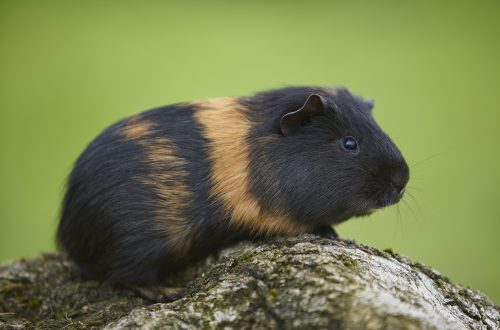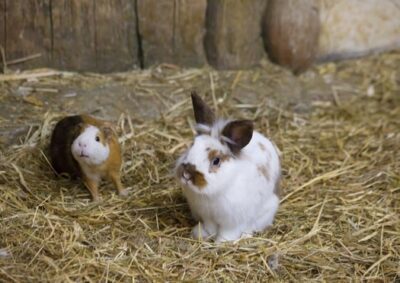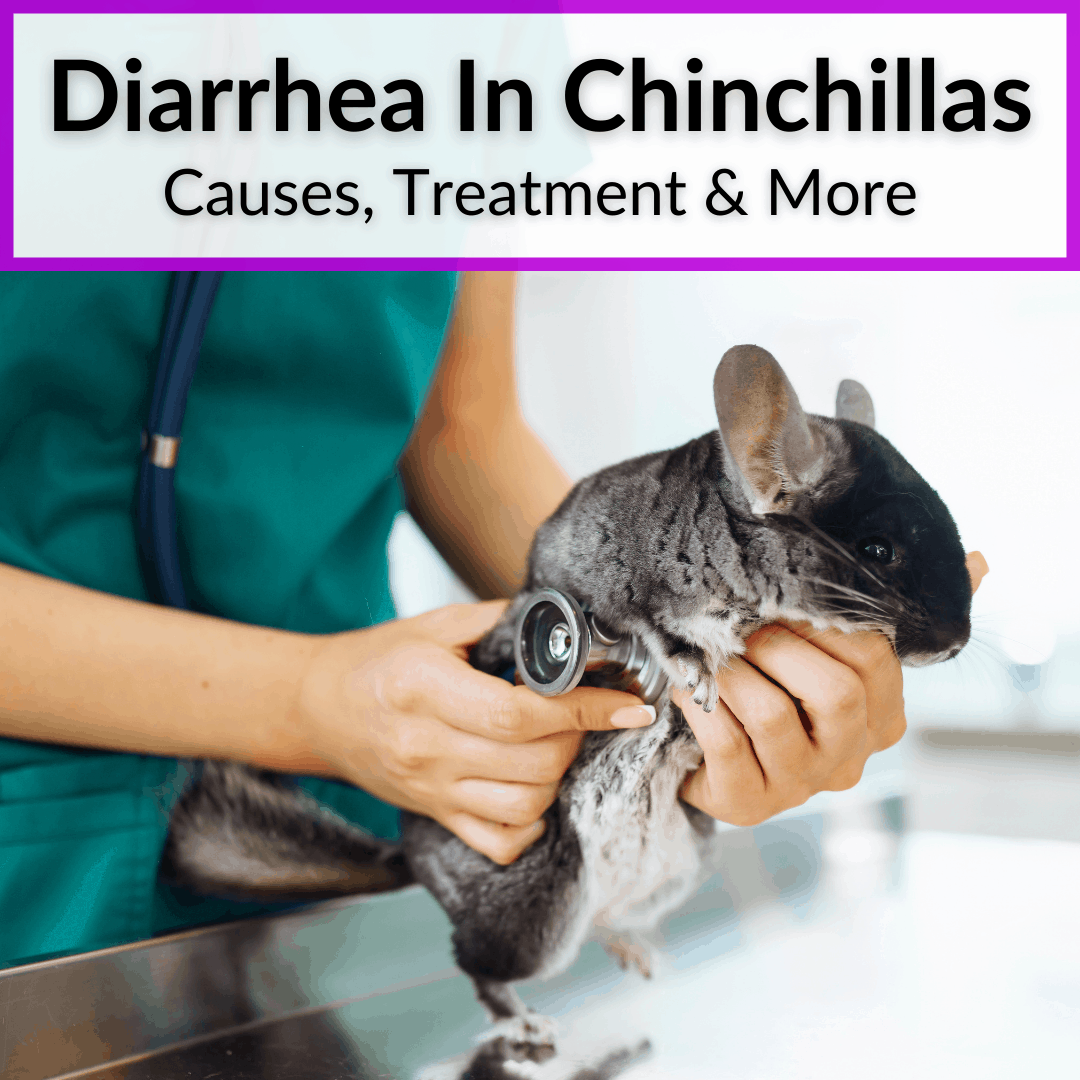
Diaree la chinchilla: ce să faci în caz de indigestie și scaune moale (simptome, prevenire, tratament)
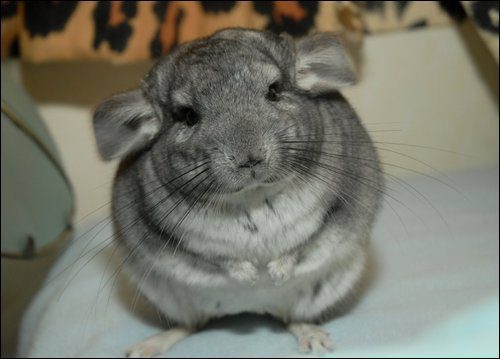
Diarrhea in chinchillas is not uncommon. This animal is subject to various disorders of the gastrointestinal tract. Why is this happening, what to do if the chinchilla has diarrhea.
Cuprins
Identification of the cause and first action for diarrhea
If the animal has diarrhea, then first of all you should understand why this happened. There are several factors that led to this condition:
- infecție bacteriană;
- boli dentare;
- intoxicație alimentară;
- too juicy or too dry food;
- food that is too high in protein
- invasive parasite infestation;
- protozoal infections;
- animal stress.
If the boluses smell, soft stools appeared at the same time, then there is a possibility of infection, you will need to take tests to clarify this. If the diarrhea is of non-infectious origin, then an unpleasant odor is not felt. About ten boluses (fresh only) will be required for testing. They should be collected, taken to the laboratory in a glass container.
It is necessary to analyze whether the chinchilla’s diet has changed recently. Maybe she was switched to unfamiliar food or overeaten fresh grass? Ask your child if he has overfed your pet with treats.
The cage must be cleared of all food, complementary foods. Only fresh water and hay are left. This diet will ease the condition of the gastrointestinal tract. The drinker should be disinfected. This is done with boiling water. Rinse the cage thoroughly, ventilate.
Symptoms of pride
Symptoms of indigestion in chinchillas are well expressed:
- mișcări frecvente ale intestinului lichid;
- the animal trembles finely – this is how fever manifests itself;
- you notice that the animal does not touch the food;
- rodent activity is reduced;
- urinare rară;
- too dry mucous membrane speaks of dehydration of the chinchilla’s body.
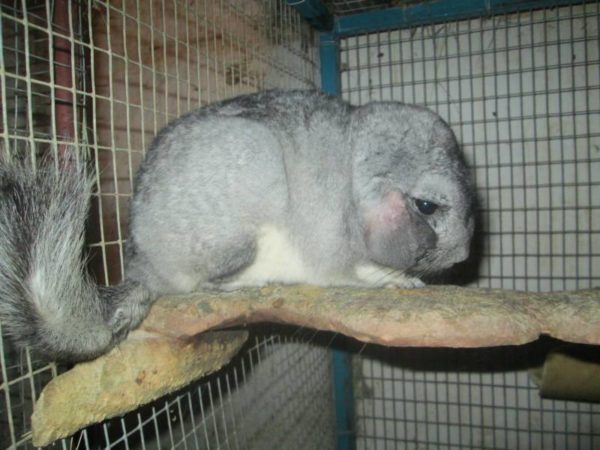
Treatment for diarrhea in chinchillas
It is better to start treating a rodent at home with folk methods using herbs, only after that give medication if there is no improvement.
Retete traditionale
Here are the most popular recipes if the chinchilla has loose stools:
- buy burnet grass, its rhizomes have astringent, anti-inflammatory, hemostatic, bactericidal effects. The usual decoction is made, several times a day the animal needs to solder it;
- rice water is useful, it perfectly cleanses the body of any decay products during intoxication;
- An excellent remedy is chamomile, plantain and oak bark. These herbs are not only brewed, but also allowed to gnaw in a dry form (this way they act more slowly, but carefully). If you need a quick result, then you should make a decoction – the concentration of nutrients increases, the therapeutic effect comes faster, since absorption is faster;
- it is recommended to give a pomegranate crust to gnaw;
- unusual healing method. The boluses of a healthy animal are crushed, diluted with water, the sick chinchilla is drunk – often this helps.
Asistenta medicala
It is necessary to treat diarrhea in chinchillas with drugs if herbal decoctions do not help. Here are the most effective drugs:
- poate da Smektu straight from a spoon or dissolved in water (50 ml / one sachet). You can drink with a syringe, about three times a day (no more than two cubes at a time);
- great tool – Cărbune activ, one tablet per day is enough;
- modern homeopathic medicine mincinos gives good and fast results if diarrhea has begun. It is purchased at a veterinary pharmacy and given one tablet per day (if indigestion is severe, then the dose can be increased to 2 tablets per day);
- ftalazol – one tablet per day;
- Lineks given three times a day for a week. Diluted in water 1/6 of the usual dose is drunk with a syringe;
- instrument excelent Hilak forte. Dissolve about 20 drops in a glass of water and pour into a chinchilla drinker;
- medicina homeopata Verokol, an effective remedy, give the animal three times a day;
- Bifitrilak – a veterinary medicinal product for the elimination of disorders of the gastrointestinal tract. It is given with food, once a day (the dose is calculated based on the weight of the animal: 0.1 g per kilogram of weight;
- pregătire veto successfully used to treat intestinal infections, with various poisonings. Its activity remains despite the environment of the stomach – quite aggressive. Vetom effectively restores the mucosa, the microflora quickly normalizes.
After eliminating negative symptoms and normalizing the stool – the boluses have acquired a solid consistency, the chinchilla should follow the diet for a couple more days. Hay and water will be sufficient during this recovery period. Medicines, medicinal herbs are no longer used.
For about seven more days, give only water, hay and granules. Delicacy, complementary foods are prohibited. If these conditions are not met, then diarrhea can return with renewed vigor.
How to treat a chinchilla if diarrhea is due to helminthic invasion
Parasitic infection in this animal is manifested primarily by diarrhea. According to statistics, fifty percent of all chinchillas suffer from helminthic invasion.
If you notice regular diarrhea, which then begins, then suddenly passes by itself, then this should alert you. Laboratory tests often reveal parasites.
A proven tool that will help remove worms – Furazolidon. Take a tablet, divide in half, grind, add to the drinker, based on one hundred milliliters of water. The drinker should be shaken periodically, as the medicine settles to the bottom and walls. Change the drinker every day. If the chinchilla drinks less water, then the concentration of the drug should be reduced.
The course is held for one and a half weeks, usually this is enough to get rid of the parasites.
In parallel with the reception of “Furazolidone”, it is effective to solder the animal with a powdered syringe. “Nemozolom”. Per kilogram of body weight / 15 mg, taken throughout the day, dividing this dose into three doses. This procedure is seven days.
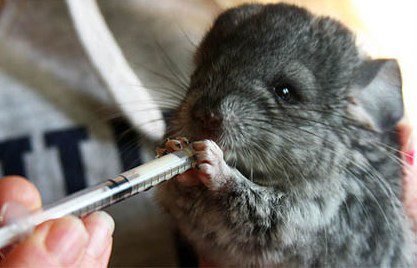
After the course of treatment is completed, a break of ten days is taken and then repeated. To make sure that the chinchilla got rid of parasites, a control analysis is given after fourteen days.
Important: after eliminating the worms and symptoms such as diarrhea and indigestion, the cage should be completely disinfected to prevent re-invasion.
How to Prevent Chinchilla Indigestion
Treatment for diarrhea with modern medicines usually gives a quick and effective result, but so that this trouble does not happen again, you need to know how to prevent this disease.
The symptoms of diarrhea can cause serious harm to your pet, so when introducing a new food, it should be done gradually. Juicy grass is useful, but it must be given very carefully.
Before feeding the animal, check the food for any unpleasant odors or dust. If you notice mold, immediately clean, wash the tray and disinfect with boiling water. Make sure that the water in the drinker is always fresh, change it every day.
Pay attention to boluses – they are a great indicator of the condition of the chinchilla. If she is healthy, then the stool is hard. If you find soft boluses, then this is a sign of an eating disorder and it would be useful to consult a veterinarian.
Protect your pet from stress. This animal does not tolerate noise, sudden movements. An unexpected fright can provoke intestinal dysfunction.
It is important to know that with the pathology of the gastrointestinal tract, emergency medical care is needed, otherwise the chinchilla can be lost. Timely and competent help from a ratologist will save the life of a pet, do not hesitate if there is a suspicion of a serious danger.
Video: chinchilla diarrhea
Diarrhea and loose stools in a chinchilla: symptoms and treatment
3.9 (78%) 120 voturi



